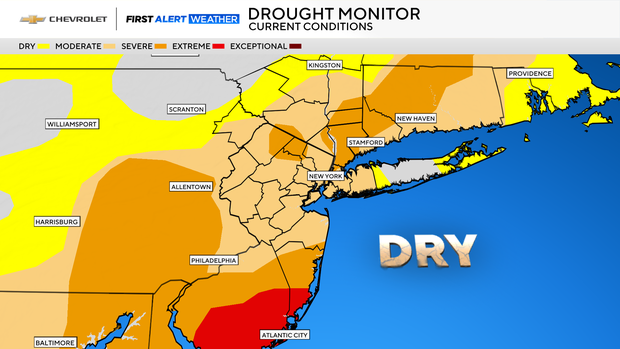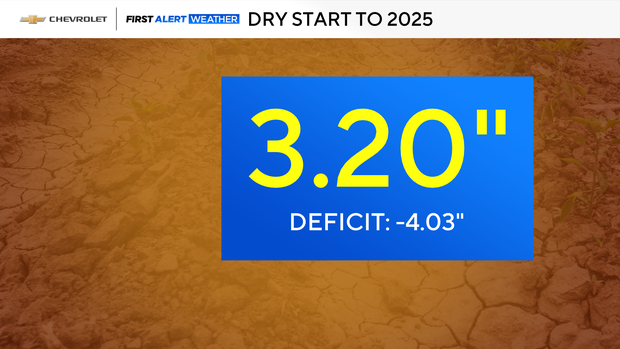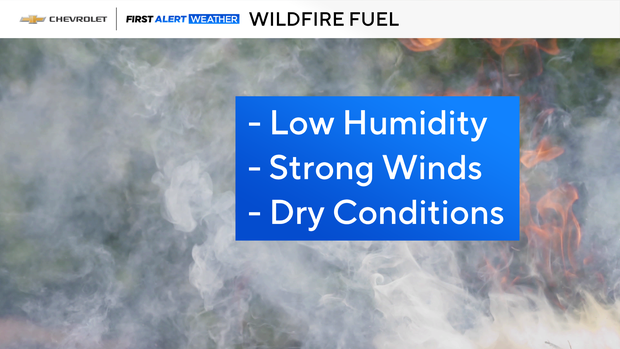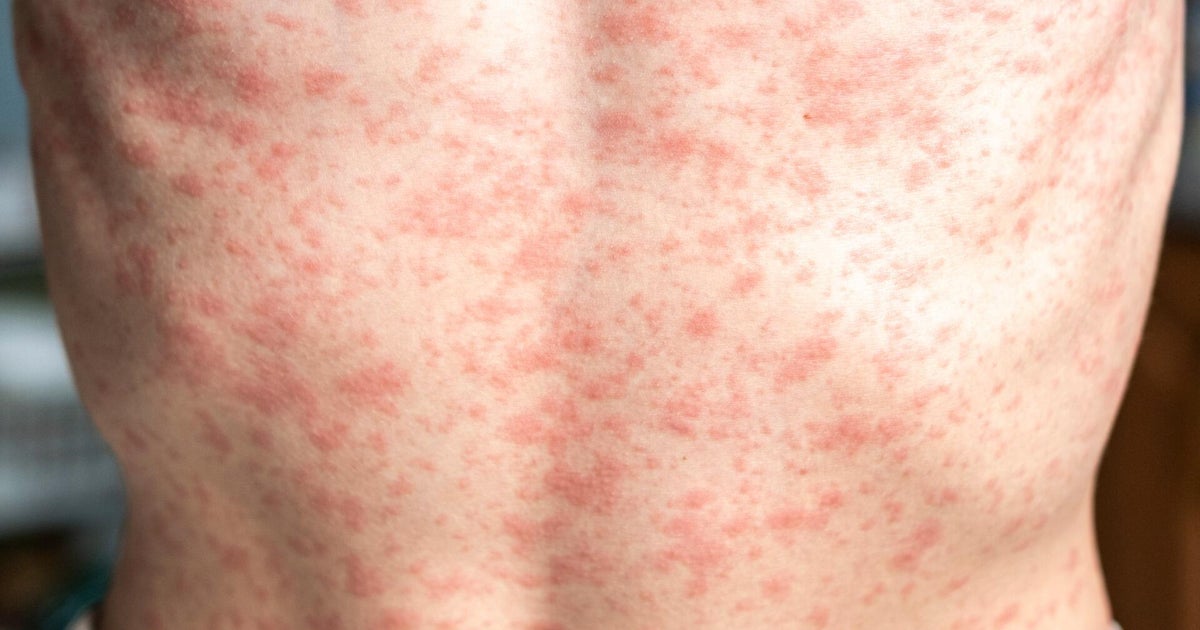Much of New Jersey at "high" wildfire risk already. Here's why.
New Jersey fire officials are preparing for what could be a very active wildfire season.
After an especially busy fall last year, the fire risk across the state has once again been elevated to "high."
So far this year, there have been nearly four times the number of wildfires compared to the same period last year. Most of those have been in Central and South Jersey.
Officials say if that keeps up, it'll be a long fire season.
"We're definitely seeing an increase in fires. We're seeing an increase in fire numbers substantially. We're seeing acreage, bigger fires, burning hotter, burning faster. Why? Because it's dry. The weather's lining up," Chief Bill Donnelly of the New Jersey Forest Fire Service said.
"So we see this lessening of a specific fire season and more of a year-round fire season. And that puts a real strain on the resources to respond, not only to the numbers but the size," New Jersey Department of Environmental Protection Forestry Administrator Gregory McLaughlin said.
New Jersey remains in a drought warning. More rain is needed this spring to help the state's reservoirs recover from the dry conditions last year.
About the dry conditions
Dry, windy, low humidity. Those are the key ingredients that promote rapid wildfire growth. While our area's wildfire season is typically in the late spring, its not surprising at all that a good portion of New Jersey is now in a "high" risk of fire ignition given how dry its been so far this year.
Since the fall, the region has been dealing with drought conditions ranging from abnormally dry to extreme. As of last Thursday, all of New Jersey continues to be classified as moderate, severe, or extreme drought.
The New Jersey Forest Service uses various indices to monitor the forest fuel levels, or basically how dry it is, to help predict the chance of an ignition turning into a wildfire. The National Fire Danger Rating System has ratings of low, moderate, high, very high, and extreme. Much of New Jersey is now high.
Since the year began, precipitation across the area is averaging 3-5" below normal. That's on top of what was one of the driest fall seasons on record for many places across the Tri-State.
While the risk of wildfires is high due to dry fuels, the National Weather Service monitors the risk of wildfire spread using humidity and wind forecasts. Should concern grow for an elevated risk of wildfire spread, a Special Weather Statement or Red Flag Warning may be issued. As of now, there are no alerts in effect.
Red Flag Warnings are designed to help fire managers know when not to prescribe burns on federal lands. They also help the general public know when it's unsafe to use fire in an outdoor setting such as a campground. Overall, the New Jersey Forest Service monitors the forest fuel levels for risk of fire ignition in case any stage of a fire ban is required. The National Weather Service can use that information to help forecast the risk of wildfire spread based on forecasted humidity levels and wind speeds.
What does all of this mean? The state's forests continue to be dry due to below average precipitation. The risk of wildfire ignition should any spark occur is high, which is a level 3 out of 5 on the scale. Meanwhile, while there is some concern for wildfire spread Tuesday, the risk is relatively lower than it was over the weekend. Wind gusts will be 15-25 mph Tuesday across the state and while humidity levels will be slow to rise, rain approaching for tomorrow is good news. So, no alerts from the National Weather Service as of this afternoon and no major fires are burning at the moment.






